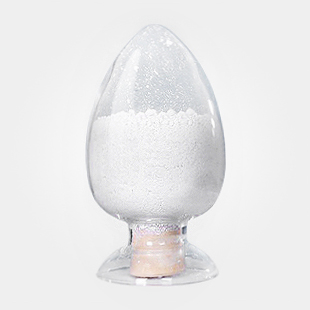| Purity: | 99 |
|---|---|
| Model Number: | 220127-57-1 |
| Brand Name: | NJBN STEROID |
| Grade Standard: | Medicine Grade |
| Type: | Vitamins, Amino Acids and Coenzymes |
| Place of Origin: | China (Mainland) |
| EINECS No.: | 220127-57-1 |
| MF: | C30H35N7O4S |
| Other Names: | Imatinib mesylate |
| CAS No.: | 220127-57-1 |
| Sample: | Free |
| Market: | Worldwide |
Quick Details
Specifications
Imatinib mesylate 220127-57-1 For Echinocandin Antifungal
Product Name: Imatinib mesylate
Synonyms: GLIVEC;GLEEVEC;IMATINIB METHANESULFONATE;CGP-57148B;4-[(4-methylpiperazin-1-yl)methyl]-n-[4-methyl-3-[(4-pyridin-3-ylpyrimidin-2-yl)amino]phenyl]benzamide methanesulfonate;4-[(4-methyl-1-piperazinyl)methyl]-n-[4-methyl-3-[[4-(3-pyridinyl)-2-pyrimidinyl]amino]phenyl]-benzamide monomethanesulfonate;STI-571;IMATINIB BASE(IMA-3)
CAS: 220127-57-1
MF: C30H35N7O4S
MW: 589.71
Chemical Properties Off-White Solid
Usage echinocandin antifungal, active against infections with Aspergillus and Candida, inhibits cell wall synthesis
Product Description
Imatinib mesylate is a tyrosine kinase inhibitor IC50 value of 100 nM, 100 nM, 600 nM for v-Abl, c-kit, PDGFR, respectively
Imatinib Mesylate is a specific tyrosine kinase (abl, c-kit, and PDGFR) inhibitor and is reported to sensitize cells to radio- or chemo-therapy. When tested with Y-79 and WERI-RB-1 Rb cell lines, imatinib mesylate treatment decreased the cell proliferation and invasion with the concentration of 10 μM [3]. In osteoblast cells, administration of imatinib mesylate decreased osteoclast development via stimulating differentiation, inhibiting proliferation and survival
In dog model with mast cell tumor, administration of imatinib mesylate at a dose of 10 mg/kg daily for 1-9 weeks reduced tumor growth via inhibiting tyrosine kinase
Usage
Imatinib Mesylate is orally bioavailability mesylate salt of Imatinib, which is a multi-target inhibitor of v-Abl, c-Kit and PDGFR with IC50 of 0.6 μM, 0.1 μM and 0.1 μM, respectively. Imatinib also known as Gleevec, Glivec, CGP-57148B, STI-571 & Imatinib
Imatinib Mesylate (STI571) is an orally bioavailability mesylate salt of Imatinib, which is a multi-target inhibitor of v-Abl, c-Kit and PDGFR with IC50 of 0.6 μM, 0.1 μM and 0.1 μM, respectively.
echinocandin antifungal, active against infections with Aspergillus and Candida, inhibits cell wall synthesis

Product Name: Imatinib mesylate
Synonyms: GLIVEC;GLEEVEC;IMATINIB METHANESULFONATE;CGP-57148B;4-[(4-methylpiperazin-1-yl)methyl]-n-[4-methyl-3-[(4-pyridin-3-ylpyrimidin-2-yl)amino]phenyl]benzamide methanesulfonate;4-[(4-methyl-1-piperazinyl)methyl]-n-[4-methyl-3-[[4-(3-pyridinyl)-2-pyrimidinyl]amino]phenyl]-benzamide monomethanesulfonate;STI-571;IMATINIB BASE(IMA-3)
CAS: 220127-57-1
MF: C30H35N7O4S
MW: 589.71
Chemical Properties Off-White Solid
Usage echinocandin antifungal, active against infections with Aspergillus and Candida, inhibits cell wall synthesis
Product Description
Imatinib mesylate is a tyrosine kinase inhibitor IC50 value of 100 nM, 100 nM, 600 nM for v-Abl, c-kit, PDGFR, respectively
Imatinib Mesylate is a specific tyrosine kinase (abl, c-kit, and PDGFR) inhibitor and is reported to sensitize cells to radio- or chemo-therapy. When tested with Y-79 and WERI-RB-1 Rb cell lines, imatinib mesylate treatment decreased the cell proliferation and invasion with the concentration of 10 μM [3]. In osteoblast cells, administration of imatinib mesylate decreased osteoclast development via stimulating differentiation, inhibiting proliferation and survival
In dog model with mast cell tumor, administration of imatinib mesylate at a dose of 10 mg/kg daily for 1-9 weeks reduced tumor growth via inhibiting tyrosine kinase
Usage
Imatinib Mesylate is orally bioavailability mesylate salt of Imatinib, which is a multi-target inhibitor of v-Abl, c-Kit and PDGFR with IC50 of 0.6 μM, 0.1 μM and 0.1 μM, respectively. Imatinib also known as Gleevec, Glivec, CGP-57148B, STI-571 & Imatinib
Imatinib Mesylate (STI571) is an orally bioavailability mesylate salt of Imatinib, which is a multi-target inhibitor of v-Abl, c-Kit and PDGFR with IC50 of 0.6 μM, 0.1 μM and 0.1 μM, respectively.
echinocandin antifungal, active against infections with Aspergillus and Candida, inhibits cell wall synthesis




